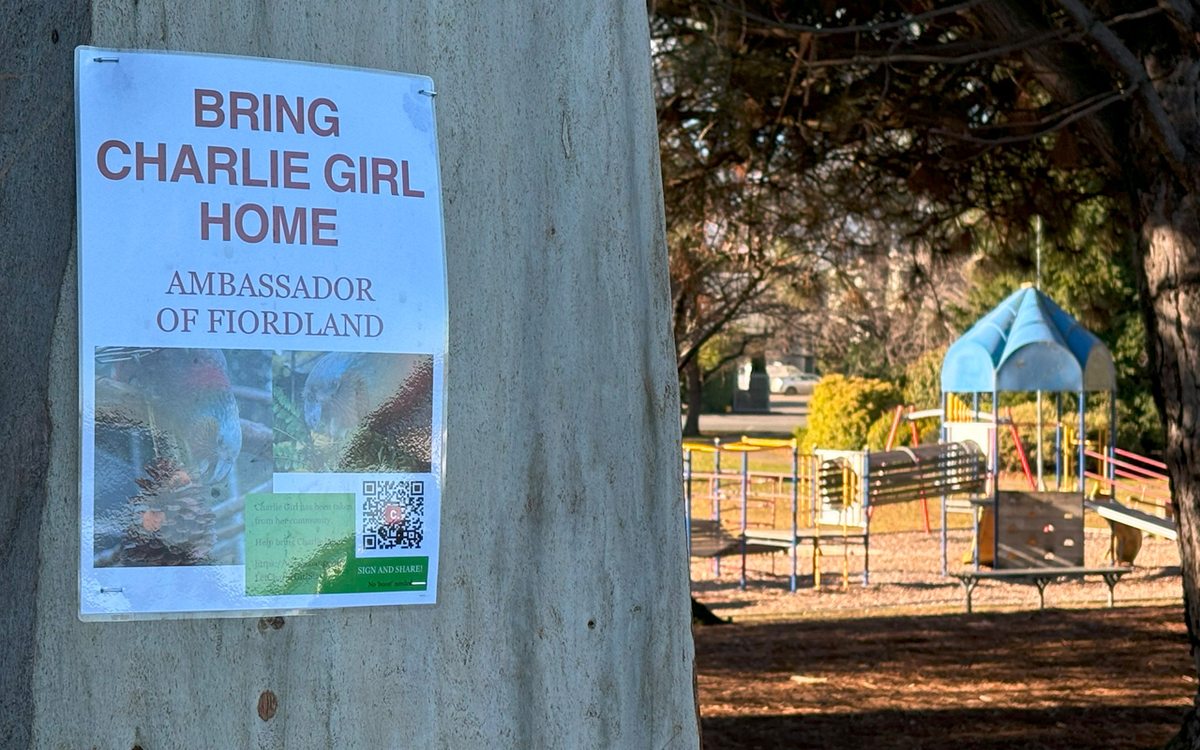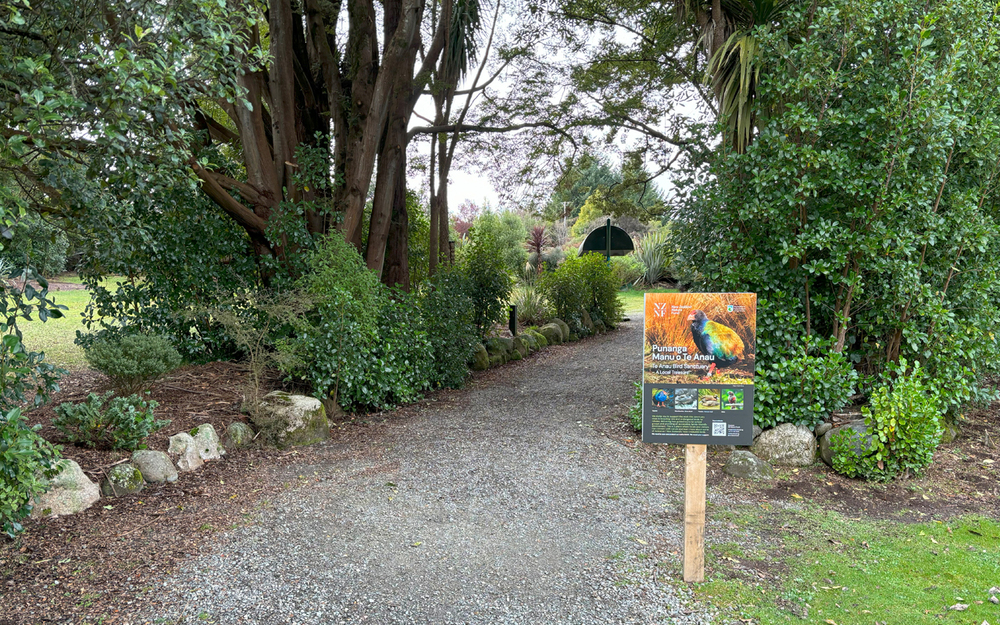Te Anau kākā 'Charile Girl' to remain in Dunedin
27 February 2025, 2:37 AM
 Charlie Girl, Te Anau's last captive kaka, is to stay in Dunedin after an independent assessment. The bird's relocation from the Te Anau Bird Sanctuary caused an uproar from those who knew her and a campaign to have her returned. Photo: Southland App
Charlie Girl, Te Anau's last captive kaka, is to stay in Dunedin after an independent assessment. The bird's relocation from the Te Anau Bird Sanctuary caused an uproar from those who knew her and a campaign to have her returned. Photo: Southland AppTe Anau's last captive kākā - Charlie Girl - will continue to reside at the Dunedin Botanic Garden Aviary following a Ministry of Primary Industries commissioned independent assessment into her welfare.
The bird's relocation from the Department of Conservation (DOC) managed Te Anau Bird Sanctuary in June 2024, as part of a Dunedin-based South Island kākā captive breed-for-release program, caused an uproar amongst Fiordland locals who knew her and feared for her ongoing welfare.
The assessment was led by Professor Ngaio Beausoleil from Massey University’s Tāwharau Ora School of Veterinary Science, who found that Charlie Girl was in good physical health and well cared for, despite her chronic arthritis from old injuries.
However he also found that Charlie Girl had shown some abnormal repetitive behaviors, such as swaying and toe nibbling, which have increased since her move to Dunedin.
It was believed that these behaviors were linked to her early years in captivity under impoverished conditions before she was transferred to Te Anau.
Professor Beausoleil recommended that Charlie Girl stay in Dunedin to provide stability and help her adapt to her new surroundings.
He further suggested the development of a behavior catalogue for captive kākā and updating the Kākā Husbandry Manual to improve welfare monitoring.
DOC Fauna Science Manager, Ash Murphy, said that DOC was collaborating with wildlife husbandry experts at the Dunedin Botanic Garden Aviary and an avian specialist veterinarian from the Dunedin Wildlife Hospital to work on a plan to implement Professor Beausoleil’s recommendations.
“The plan includes keeping Charlie with her enclosure mate in their current aviary and maintaining her high standard of care,” Murphy said.

Te Anau's DOC managed Bird Sanctuary was home to Charlie Girl until June 2024, when she was relocated to Dunedin. DOC signaled in January that they wish to quit the management of the sanctuary. Photo: Southland App
“Her keepers will gradually introduce more opportunities for Charlie to have positive human interactions through reward-based training to enhance her wellbeing.”
DOC said in a statement that Charlie’s care would be closely monitored, including her diet, eating habits, and weight.
The public is encouraged to give Charlie the time she needs to settle in, bond with her mate, and enjoy her life at the aviary, the statement said.
Charlie Girl's time in Te Anau had seen her become an excellent mother and foster parent, raising multiple clutches of chicks.
In Dunedin, she is paired with male kākā, Bling, with whom she successfully bred in Te Anau. However despite positive signs, the pair did not produce offspring this season.
DOC is also considering Professor Beausoleil's recommendations to enhance the South Island kākā breed-for-release program.